Putting yourself in a position where you are job-ready upon graduation takes initiative, planning and research.
However, it’s also the best way to stand out from the graduate crowd and prepare yourself for a successful career.
Here are our top tips to follow to make yourself more employable:
1. Research the industry landscape and know what you want
The best graduate job applicants are the ones who have work experience and a resume suited to the role they’re applying for. Before you decide which jobs you’re going to target when you graduate, do some research.
Interviewers will want to know where you think you’re heading, so make sure you’re clear in your own mind and have asked yourself these key questions:
- What graduate positions are available in your field?
- What skillsets do those positions require?
- Will you be expected to do an unpaid internship in your field before you can aim for a paid position?
- What job do you ultimately aspire to?
If you’re studying a general course, you might want to research a high-growth niche you could occupy in your industry, and target your work experience, resume or any further training to that. This will help you stand-out from other graduates and give you the best chance of developing an in-demand skill set.
For example, if you’re completing a Bachelor of Marketing, you could brand yourself as a social media specialist, and set yourself up for a career in the booming digital economy.

2. Do some targeted volunteering
As a student, it can be difficult to get paid work experience in your field because you’re just not qualified enough yet. Volunteering is a great way to bridge that gap and get experience relevant to your career.
Try to find an organisation or charity aligned with your area of interest/study and contact them to find out what positions are available. For example, if you’re aiming for a career in management, it would be extremely valuable to gain volunteer experience in a coordinator or administrator role.
3. Write a resume tailored to your job
The starting point for any job search process is writing a resume, and that’s something you can get started on before graduation. As a first step this will involve researching the type of positions you’d like to apply for so that you can tailor your resume to jobs that are on offer.
A generic, ‘one-size-fits-all’ resume will be quickly dismissed, so always ensure you read the position description carefully and communicate your skills/experience that best match what the employer is looking for.
When it comes to writing your resume, there are some rules you should follow for best results. Check out this guide to writing the perfect graduate resume, and make sure you check your resume to see if it fits to Australian standards.

4. Take advantage of career services
Most colleges and universities offer a careers service where you can get help with anything job search-related. For example, Student Services at the University of Adelaide College are always on hand to help students find out more about the pathway to their chosen career.
Later in your studies, the Careers Service office at the University of Adelaide can help you with writing a resume and cover letter. They also offer weekly workshops on resume writing and can help answer any questions you might have about looking for work.
5. Internships often lead to work
Did you know that on average, 60% of paid graduate internships turn into work?
Considering that incredible success rate, you’d be crazy not to try securing an internship before you graduate!
There are two options when it comes to securing an internship before graduation.
Firstly, you can do it via an internship program offered at your institution. Often, colleges and universities will assist students with finding or securing an internship before graduation.
Secondly, you can organise your own internship by looking online, or reaching out to organisations you’d like to work for and asking about their internship programs.
6. Start networking early
There is no such thing as starting to network too early, considering that 70% of jobs are found through networking.
Fortunately, studying at university presents a lot of opportunities to network. Job fairs, internship programs, guest speakers, alumni networks, and your campus career centre are all valuable resources you should take advantage of. Make sure to get involved in extra-curricular activities on campus and find out what connections your lecturers have.
7. Be savvy on social media
Of course, part of networking these days is having an active online presence. LinkedIn is an absolute must for developing your professional network, advertising your personal brand, and even for finding work.
But, LinkedIn isn’t the only important social media platform, when it comes to finding a graduate job. Twitter and Instagram can be invaluable professional networking platforms, depending on your industry.
One warning: your employer will Google your name, so be the first to do that, and make sure you don’t have any content online that you don’t want a potential employer to see. See here for tips on how to manage your online reputation, and take advantage of social media in job hunting.

8. Develop a plan of attack
How long can you afford to look for work, without any income? Will you be able or willing to accept an unpaid internship if it comes up? Will you need part-time work while you’re searching for your graduate job? If your top three job applications don’t work out, what’s your plan B?
Finding work as a graduate is like having a full-time job. It helps to have a plan, and approach it with some structure.
A few handy tips:
- Actively schedule in time to job search and write tailored applications.
- Write a list of job-seeking sites, and methodically go through it.
- Put job fairs and networking events in your calendar.
- Keep a spreadsheet of applications and collect email addresses of recruiters. This way, you can check in with them further into your job search, to see if they have anything new.
See here for more information on courses at the University of Adelaide College, your pathway to the University of Adelaide.

